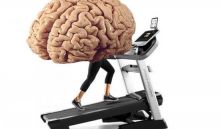
Separating pseudo from science in cognitive enhancement.
(repeat) Looking to boost your brainpower? Luckily, there are products promising to help. Smart drugs, neurofeedback exercises, and brain-training video games all promise to improve your gray matter’s performance. But it’s uncertain whether these products really work. Regulatory agencies have come down hard on some popular brain training companies for false advertising. But other brain games have shown benefits in clinical trials. And could we skip the brain workout altogether and pop a genius pill instead?
In our monthly look at critical thinking, we separate the pseudo from the science of commercial cognitive enhancement techniques.
- Caroline Williams – Science journalist and author of “My Plastic Brain: One Woman’s Yearlong Journey to Discover If Science Can Improve Her Mind”
- Adam Gazzaley – Neuroscientist, University of California, San Francisco, and the executive director of Neuroscape. His book is “The Distracted Mind: Ancient Brains in a High Tech World.”
- Amy Arnsten – Professor of neuroscience and psychology at Yale Medical School
- Kevin Roose – Journalist for the New York Times.
- Leonard Mlodinow – Physicist and author of “Elastic: Flexible Thinking in a Time of Change”
originally aired August 6, 2018
